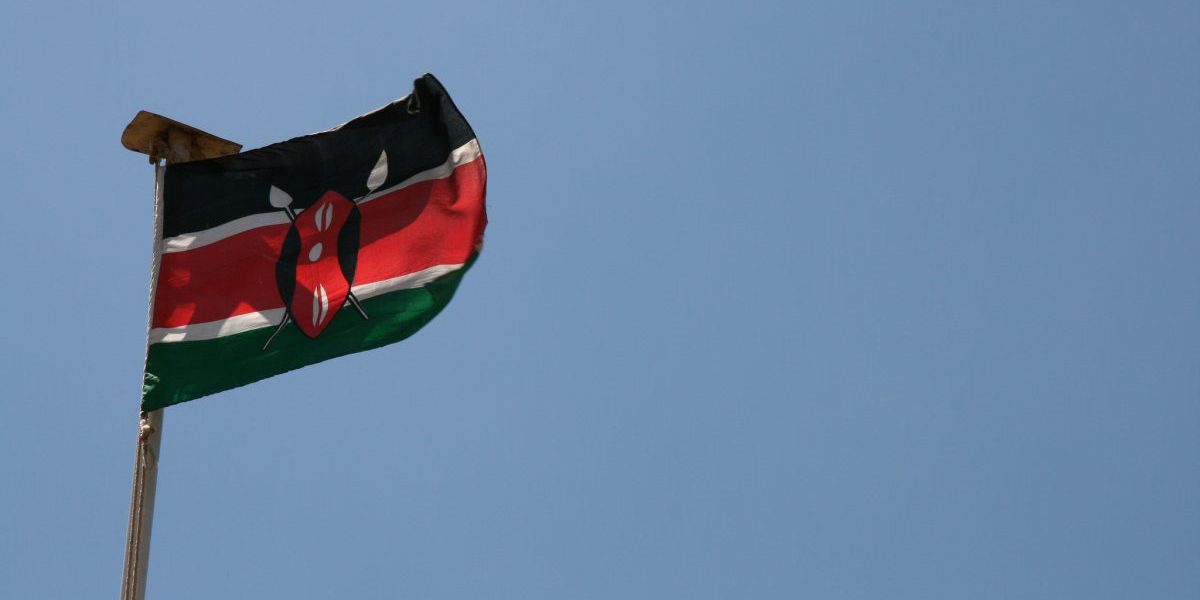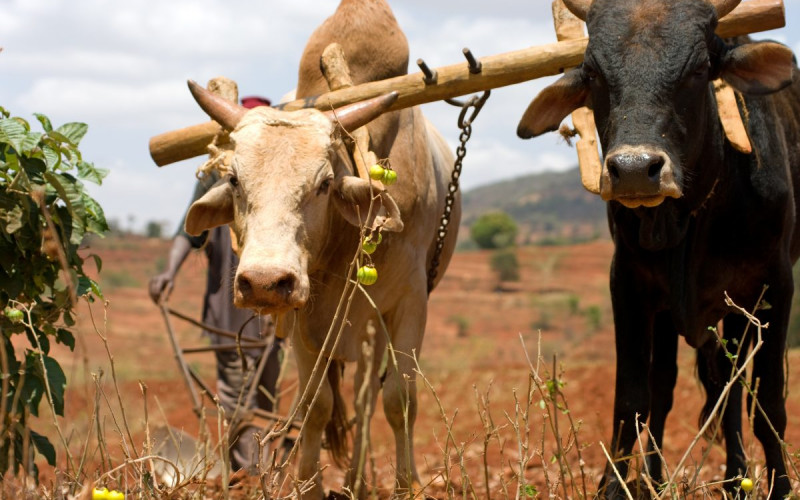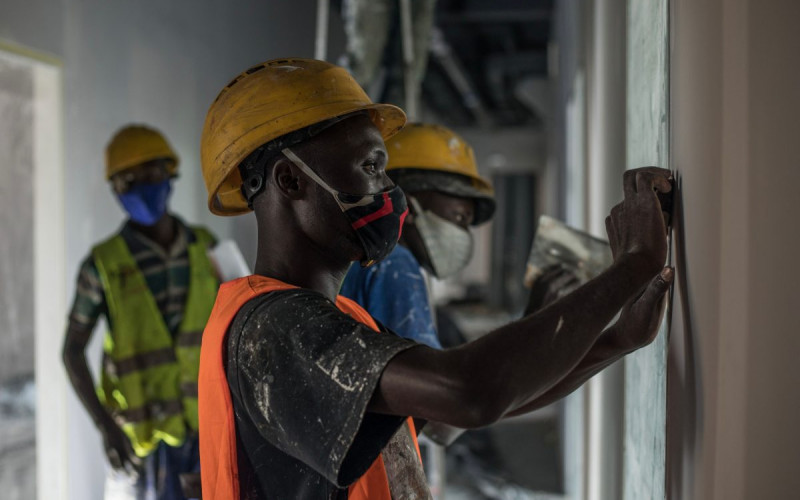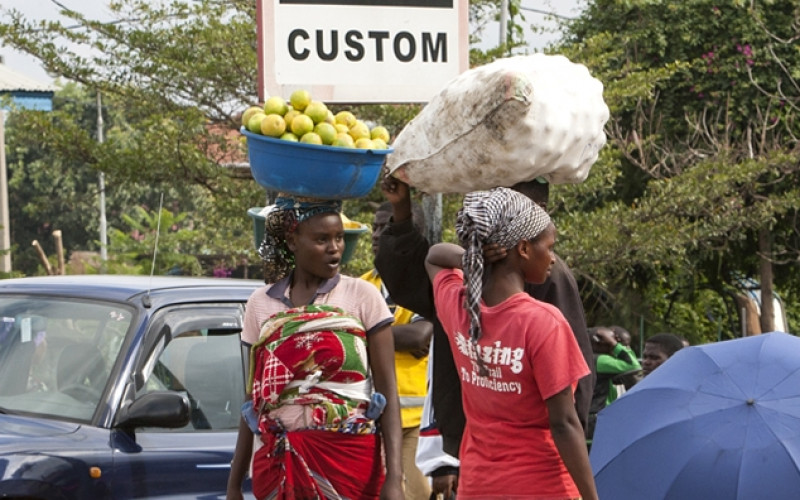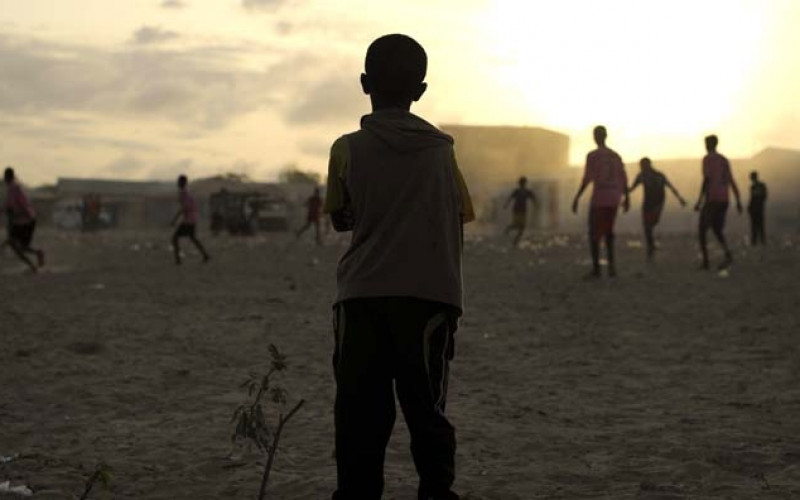“I’ve now written three non-fiction books about Africa. What I’ve discovered is that, ironically and frustratingly, the most interesting things about a society you often learn after your book has come out. This has never been truer than with “It’s Our Turn to Eat. The story of a Kenyan Whistleblower”, which tells the story of anti-corruption czar John Githongo.
When the book was first published, a year and a half ago, it saw what Philo Ikonya, the head of PEN-Kenya, aptly dubbed “The return of fear” in an open letter of protest. I had never expected that my book would be boycotted by Kenya’s booksellers, as happened. I was astonished to read internet exchanges and blog entries in which Kenyans speculated whether or not it was safe to read the book in public and whether it might be seized at customs if they flew into the country with it in their luggage.
Nairobi’s bookshop owners justified their stance by saying they were afraid of being sued by the high-profile individuals mentioned in a book about a government corruption scandal. I’ve never found that excuse very convincing. Whatever prompted the boycott, it was a surprisingly passive response to an imagined threat. It marked a return to the kind of thinking seen during the darkest days of former President Daniel arap Moi’s regime, highlighting the superficiality of some of the supposedly profound changes Kenya had experienced in the last decade. Citizens accept and internalise modes of behaviour adapted to life lived under authoritarian rule with worrying, disconcerting speed.
The other thing I learnt after publication, however, was that there is now an impressive array of tools available for those who don’t want to meekly accept de facto censorship, an armoury which wasn’t available before. Technology has provided the weapons. Within days of the bookshop boycott becoming a reality, a pirated PDF file of my manuscript – probably stolen at a newspaper’s offices – started being gleefully circulated by Kenyans on the web. In the end three separate websites were offering it for free downloading. One of those websites was Wikileaks. I was angered by the fact that no one bothered to ask me whether I supported this pirate copy (I didn’t) and horrified at the potential evaporation of my global market. But the pirating certainly highlighted the role the internet can play in the fight for free speech and reform. Ten years earlier, “hot” books disapproved of by the Kenyan establishment were stashed under peoples’ beds, treasured photocopied versions passed from hand to hand. Today, regimes – like authors – simply cannot control the flow of information.
The other thing I learnt after publication was the universality of the story captured in the book’s pages. “Change the names and this is my country you’re talking about,” was the message I read in emails and book reviews from Zambia to Sudan, South Africa to Nigeria, Indonesia to Bangladesh. Only last week I attended a conference on procurement in Trinidad and Tobago, where the head of the opposition, who turned whistleblower on a top-level scandal, told me he felt he had been reading his own life story.
“It’s Our Turn to Eat” recounts how John Githongo was appointed in 2002 by the incoming administration of President Mwai Kibaki, which had won the elections promising to sweep away top-level sleaze. The idealistic new corruption chief promptly stumbled across a new scandal – dubbed Anglo Leasing – being perpetrated by members of his own administration. It was worth around $1 billion and involved 18 grossly-inflated military and security contracts which had not gone to tender or been subjected to parliamentary scrutiny and had been signed off by ministerial colleagues and permanent secretaries.
There is, of course, nothing especially African about this kind of grand corruption. We have plenty in my own country, the United Kingdom. But the longer I’ve written about Africa – 16 years now –the more I have become convinced that the kind of patronage politics which I try and describe in the book holds a key to Africa’s underdevelopment. Proportionately, the bite taken out of African economies by these scams is enormous, while the damage done by the British equivalent to that economy is fairly small. Peter Eigen, the man who founded the anti-corruption organisation Transparency International, did so because as World Bank director in Nairobi, he became convinced true development was impossible while this kind of corruption persisted. I think he was right. Corruption is often minimised as something distasteful but essentially trivial, slowing an economy down, but no more than that. This seems to me a fundamental mistake.
One of my concerns writing the book was to try and crystallise my thoughts on the roots of the sleaze which seemed to permeate Kenyan society. Thinking about it, I concluded that in Africa at least corruption boiled down to the linked issues of identity and compassion. Because who we think we are determines where we draw the limits of our compassion. We all face the question in our lives: who do we owe help and support to? Who is it our duty to take care of when times get tough? Our fellow citizen? Our ethnic community, our extended family, our intimate family? Or just oneself? In the West, the limits of that compassion are drawn very narrowly, often to encompass only the nuclear family. In Africa, that identity is drawn wider, to the community as a whole.
One of the points I make in my book is how that sense of compassion – a great human virtue – is hijacked by cynical African leaderships. “It’s Our Turn to Eat”, the motto I use as the title of my book, says it all: a minister’s theft is excused and justified on the grounds that it benefits the wider community. Theft is presented as a civic duty, not personal greed. The more blatantly a Big Man steals, the more we are expected to admire him, although in fact, of course, most of what he steals will be going to a nice flat in Kensington or Manhattan or into foreign bank accounts, not into creating jobs or improving services for his kin upcountry.
It’s going to be fascinating to see if the reconfiguration of Kenya’s provinces under the new constitution, which got a resounding “Yes” vote during the recent referendum, is going to reinforce or undermine that sense of ethnic solidarity. At a recent speech in London, John Githongo pointed out that Kenyans are used to defining themselves as “I’m from Rift Valley” or “I’m from Western” or “I’m from Central”, and that these designations will soon no longer exist, as provinces are carved into new counties. So the constitution, which stipulates 15 per cent of state revenues be spent regionally, should in theory be a strong force for detribalisation.
On the other hand, he also pointed out that the organisations rushing in the fastest to fill the new space being created at county level were ethnically self-defining groups. That could be a recipe for greater ethnic chauvinism, not less. Whichever form it takes, we can expect the new configuration to determine the shape corruption will take in Kenya in future. Corruption goes where the money goes, so it is likely to get a lot more local.
How does all this impact on Western aid policy in Kenya in particular, and Africa in general, the focus of this symposium?
Firstly, just to set this in its rightful context – the fight against grand corruption is not the responsibility or task of Western donors. Kenyans must be the ones to grapple with the problem, and they are beginning to do exactly that. One of the obstacles they have to confront is an understandable sense of weariness, built up over the decades, which too often triggers a resigned shrug of the shoulders and an “Oh well, everyone is doing it, after all,” refrain. I hear that response a lot from Kenyans when I give speeches.
But turning to donor policy: in “It’s Our Turn to Eat”, I discuss the way in which gullible donors allowed themselves to become befuddled in Kenya in the run-up to the 2007 elections. In part because they find any mention of “tribes” awkward and embarrassing, donors glossed over the very tangible rise in ethnic tensions that preceded those polls, a hostility rooted in growing resentment over the administration’s patronage politics. Instead, they focussed on admittedly impressive economic growth figures, forgetting that such growth was not seen by the public as benefiting all Kenyans, but – whether rightly or wrongly – as being reserved for one section of the population.
By ignoring the Anglo Leasing scandal and John Githongo’s warnings, Kenya’s foreign partners encouraged an increasingly arrogant regime to think it could get away with anything, including stealing the elections. I argue in my book that they therefore share some responsibility for the explosion of post-election violence.
Has donor policy changed as a result of what happened? “Yes” and “No”. Kenya post-election crisis was a massive shock. This wasn’t supposed to happen in the African country seen, above all others, as “safe” and “tame”, the perfect safari destination. That misevaluation of Kenya dates back decades and was shared by diplomats, businessmen, academics and journalists – both foreign and local. In 2008, the link between government corruption, ethnic rivalry and the possible implosion of a seemingly stable African state suddenly became clear to all.
But that wasn’t the only shock the West has experienced. The international banking crisis and credit crunch has been a far bigger one, and they put all the brave statements and pledges made back at the G8 summit in Gleneagles in 2005 in jeopardy.
In the UK, the new coalition government plans to cut ministry budgets by at least 25 per cent, perhaps as much as 40 per cent. If you live in Britain, every day comes with a new list of government-funded units consigned to history. Factories are closing, thousands losing their jobs. Unsurprisingly, surveys show a marked decline in the British public’s support for foreign aid and a growing scepticism about its effectiveness. So far, David Cameron’s government is ignoring these signals and swears that spending on the Department for International Development (DfID) will remain ring-fenced. It’ll be interesting to see how long it can hold that position. It is fairly unsurprising – to recall the “compassion” theme I mentioned earlier – that the British voter should think his granny’s hip operation or son’s education should get priority over text books being sent to a school in Kakamega.
Andrew Mitchell, DfID’s new head, put a strong emphasis on combating corruption, both at domestically and abroad, when he was in charge of development in the shadow cabinet. He knew there was growing public impatience with aid being spent on regimes that in British voters’ eyes might not deserve what they were getting.
In the past, donors placed too much belief in the creation of anti-corruption units and installation of men like John Githongo to combat corruption, given the task of catching high-profile perpetrators. The result of that approach, John himself now says, was to create “institutional orphans” which enjoy no real support from anyone but the donors. Scrupulous heads of those units end up sacked, in exile, or throw in the towel. I believe the day of the anti-corruption unit is already over. And despite the odd call for these units to be given prosecutorial powers, as though that would solve the problem, I think the West has largely lost its enthusiasm for them.
There is a widespread recognition that to be effective, the fight against corruption has to be about mobilising communities to hold their own leaders to account, focussing on a mayor, a councillor or minister’s actual delivery of basic services, perhaps, rather than pontificating about the intellectual abstraction of “corruption”. The enforcement of the basic social contract between tax payer and state.
Britain, in a small but significant way, has started to clean up its own act. Many of the companies involved in Anglo Leasing were registered in the UK. After being publicly reprimanded by the OECD for its appalling record on prosecuting domestic companies who bribe abroad, Britain has started getting serious. In August 2008 there was not a single case of a British company being prosecuted for foreign bribery. Now there are 10. Not much, perhaps, compared to the 168 cases brought in the US, but at least the trend is in the right direction.
Transparency International, which conducts a yearly survey of 36 countries’ enforcement of the OECD Anti-Bribery convention, now ranks Britain as an “active” enforcer. BAE Systems this year agreed, in a landmark ruling, to pay a £30m fine over the controversial air control system sold to Tanzania. Not enough, perhaps, but once again, an improvement on total impunity. And an anti-bribery law, something non-governmental organisations have been pushing for years, is finally due to become effective next April.
Things need to go further. The African media, civil society and parliament need help in their fight against corruption and in this struggle, detailed information is the most effective weapon. The World Bank should be publishing the details and specification of the contracts signed with governments. More and more Western states are signing up for “Publish What You Pay” legislation forcing their companies to publicly reveal their financial dealings with African ministries.
These are encouraging developments, but two dangers loom ahead, which will challenge what I consider the West’s smarter approach to Kenya.
One is that the West knows that its influence is in rapid decline in Africa. The discovery of oil in countries like Ghana, Uganda and Ethiopia means governments simply don’t need to listen to lectures on governance from foreign allies. China’s growing presence on the continent and its insistence that it is not in the game of setting conditionalities, also mean Western donors are increasingly irrelevant.
The second is a major temptation posed by the War on Terror, which bears a growing resemblance to the Cold War the longer it goes on. The temptation will be to adopt the “he may be a bastard but he’s our bastard” line towards a generation of leaders who are looking less and less Renaissance and more and more medieval.
There was surprisingly little fuss in the West about the rigging of Ethiopia’s elections, which resulted in a ludicrous 99.6 per cent score for a longstanding donor favourite – and the murder of a Rwandan opposition leader and journalist in the run-up to polls there. We risk seeing a return to the logic that kept the likes of Zaire’s Mobutu and Gabon’s Bongo in power for so long in the West’s dealings with these increasingly ruthless, linchpin regimes. The impact of that approach would be to undermine the useful work done in terms of the West getting a little more canny about how it directs its aid and renders it more effective.
I hope I’m wrong – no dreadful pun intended – but I remain sceptical as to future trends.”
Visit Michela’s website www.michelawrong.com, which lists all three books and provides details of how to buy them on the various websites.
To purchase the book from the British Amazon website (applies to Commonwealth territories).

